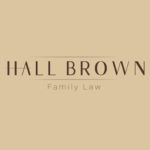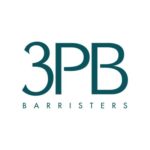Continue reading "Evidence: More than meets the eye"
Evidence: More than meets the eye

The settlor executed a trust deed dated 12 September 1960 (the trust), under the terms of which the trustees were given a power of appointment over capital and income for the benefit of the beneficiaries and their respective issue. The power was limited by a deed dated 28 March 1978 so that it could be exercised only in relation to the capital of the trust fund to which a beneficiary then enjoyed an interest in possession. In default of appointment, the capital and income of the trust fund was to be held for such of the beneficiaries living on the perpetuity day (which was to be calculat...
The deed was intended to appoint a life interest in the assets not attracting IHT relief to the deceased’s widow, the first defendant. The interest so appointed would then qualify for the spousal exemption. Due to the wording of the deed however it appointed an interest in all of the trust assets, not merely those which did not qualify for IHT relief.
The claim was issued for rectification of the deed. The claim was adjourned with directions at the first hearing, the Master expressing the view that the evidence was insufficient to sustain the rectification claim. Further evidence ...
The dispute concerned which will of the deceased, Anna Rea, should be admitted to probate. Her first will dated 29 May 1986 gave all of her property to such of her four children as should survive her, if more than one in equal shares absolutely, subject to them surviving her by 28 days (the 1986 will).
A more recent will dated 7 December 2015 (the 2015 will) was witnessed by the solicitor who prepared it and the deceased’s GP. It provided for the deceased’s house to be left to the claimant, on account of the care she had given the deceased, with the residue to be divided between h...

Continue reading "Evidence: More than meets the eye"
The testator owned substantial real estate, including two plots of farmland and a cottage. He had three children. His son Elfed began working on the farmland from a young age and in 1999 acquired neighbouring farmland which he farmed together with the testator’s land. In due course Elfed brought his own son to work with him on the farm.
The testator had made his testamentary intentions clear for some time, namely that his son Gareth and daughter Carys (the appellant and first respondent respectively) should inherit shares in a family company and Elfed should inherit the farmland k...
The deceased died intestate in England at the age of 45. The defendant was his partner who was pregnant with his third child. The claimant was one of his children from a previous relationship. Both wished to dispose of his body. The claimant wished to bury the body in France (where two of the deceased’s six children, his two sisters, his mother, and other family members lived). The defendant wished to bury the body in England (his home for the last 13 years of his life, and where she and most of his children lived). A joint expert report indicated that a journal entry stating that the de...
William Reid (the deceased) died on 20 March 2018. He left a will dated 20 December 2004 and codicil dated 8 February 2012 (together the will), which appointed the claimants, Nicholas Parsons and Mark Hill (respectively the deceased’s solicitor and land agent), as executors and trustees, and left the residuary estate on discretionary trusts for classes including his children and grandchildren. The defendants, Stephen Reid and Judith Shaw, were the deceased’s children. The deceased also left a letter of wishes which expressed the wish that payments be made to Stephen reflecting various mo...

Continue reading "Evidence: In all honesty"

Continue reading "Evidence: Covert recording in a PI claim"

Continue reading "Evidence: Vox populi?"